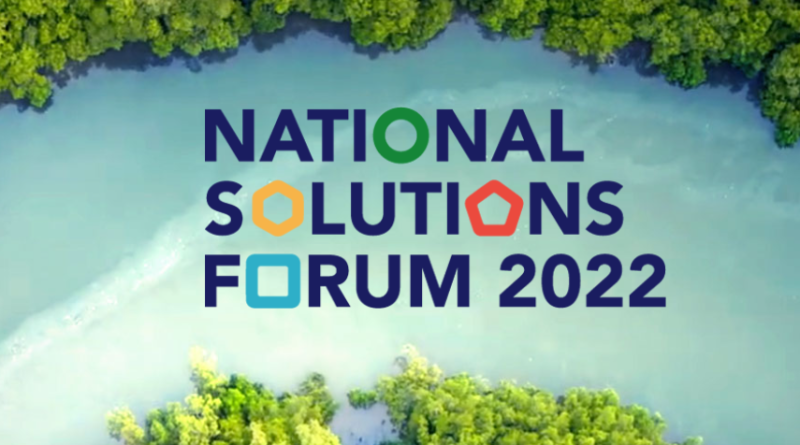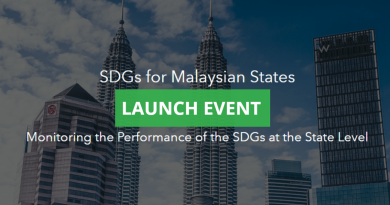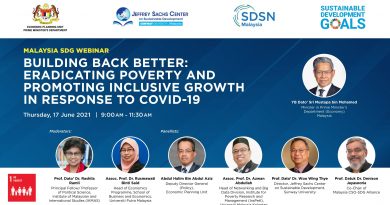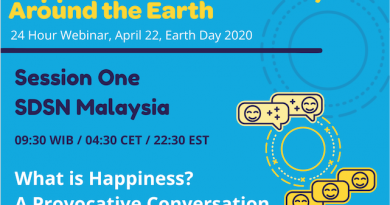Sunway Group and SDSN Malaysia Convene Multiple Stakeholders for SDG Solutions
How the SDSN Global Solutions Forum model can be used by University-Private Sector Partnerships to drive a whole-of-nation SDG-approach.
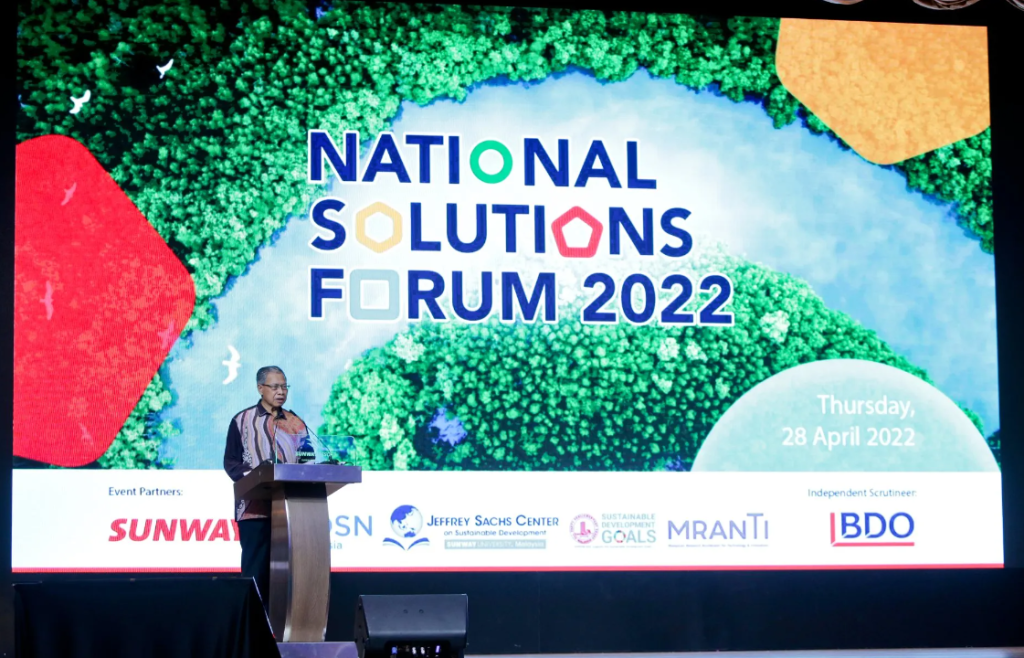
Malaysia’s inaugural National Solutions Forum (NSF) was held on 28th April 2022 to advance a whole-of-nation approach to achieve the Sustainable Development Goals (SDGs). Hosting the NSF were the Sunway Group, a leading Asian conglomerate, driven by its mission to be Asia’s leading corporation in sustainable development, and SDSN Malaysia, having the mandate to mobilize expertise for the implementation of the SDGs. This forum was modelled after the SDSN Global Solutions Forum, which has been carried out since 2019. SDSN Malaysia’s secretariat is the Jeffrey Sachs Center on Sustainable Development, Sunway University, Malaysia.
The call for submissions began in January 2022, which drew a total of 39 entries from all corners of the country. Participants were responding to this year’s theme, “Wellbeing,” in a wide variety of approaches and at different scales. Of the 39, nine shortlisted solutions were selected to be featured at the NSF and received grant funding courtesy of the Sunway Group.
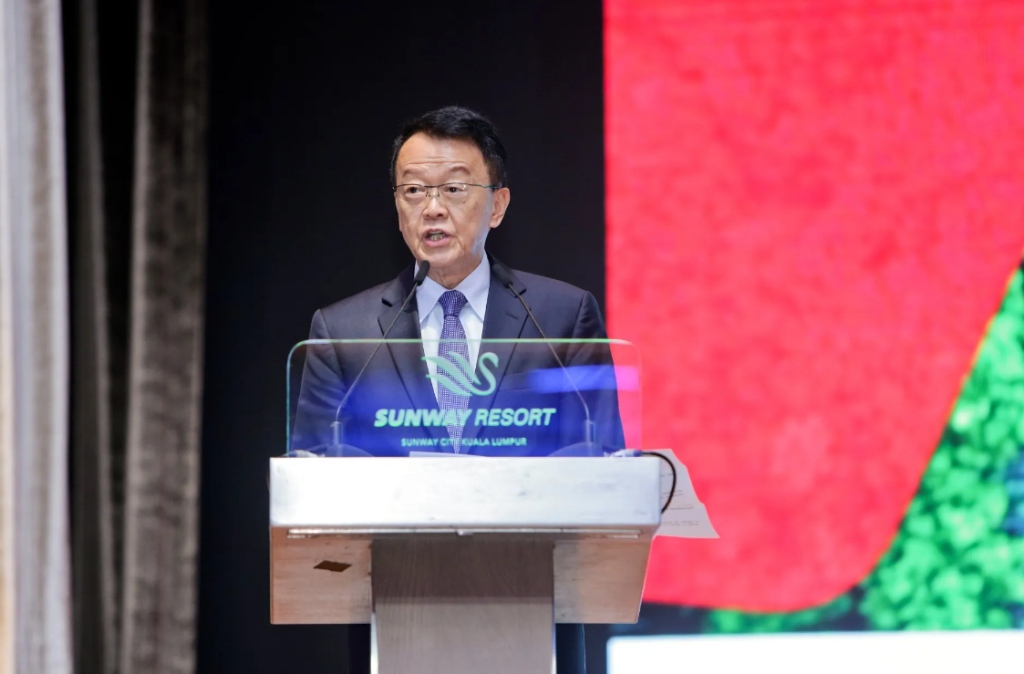
A common theme of the solutions was the emphasis on the use of digital technology to address social issues. Technology became a great equalizer in enabling access across socioeconomic groups as marginalized communities and individuals can be connected with resources at a far lower cost than before.
Investors from start-up incubators, seasoned industry professionals, the All-Party Parliamentary Group on the SDGs Secretariat (APPGM-SDG), academicians and a host of solutions-providers, graced the occasion.
Each solution was presented in seven minutes, either in English or Malay.
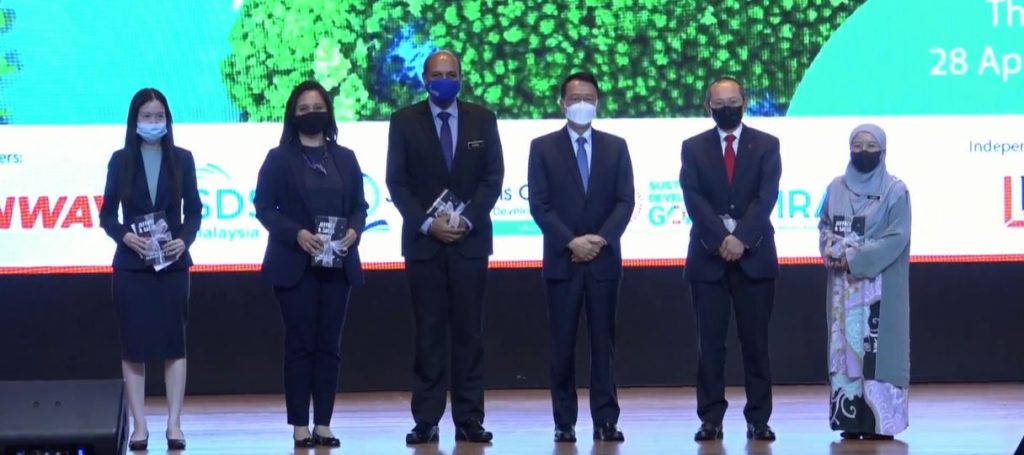
The SDSN Malaysia Leadership Council featured prominently on the judging panel, comprising three of the four judges. The panel included the chair of Malaysia’s bourse, senior members of the Malaysian civil service, and the CEO of a prominent start-up incubator. The event was also facilitated by an independent scrutineer from BDO Malaysia:
- Tan Sri Wahid Omar, Chairman, Bursa Malaysia
- Datuk Dr Zunika Mohamed, Deputy Director General (Policy), Economic Planning Unit, Prime Minister’s Department
- Dr Nagulendran Kangayatkarasu, Deputy Secretary General (Planning and Culture of Science), Ministry of Science, Technology and Innovation
- Puan Rafiza Ghazali, Group CEO, Cradle Fund
- Ms Pam Lee Wen Ai, Executive Director, Advisory BDO Malaysia
These thought-leaders in nation-building selected the NSF’s best solution, which received additional funds.
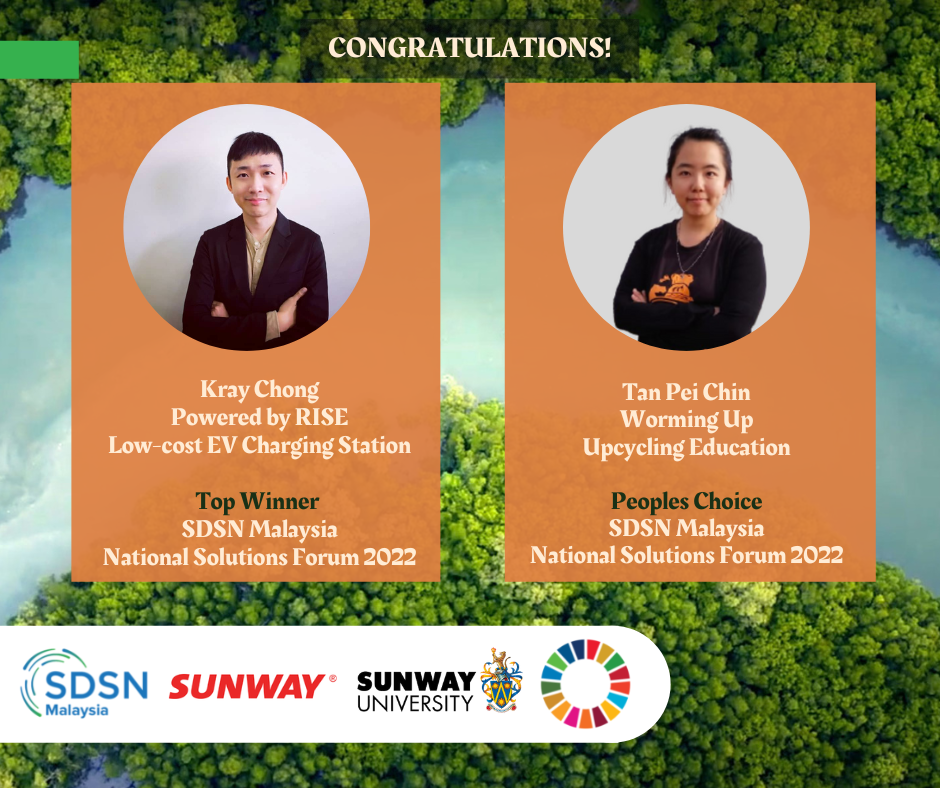
Supporting Multisectoral Partnerships to Deliver Sustainability at Scale
Start-ups struggle to create multi-sectoral partnerships to scale solutions. The NSF model provided the necessary cross-sectoral dialogue to bring together investors and government officials to enable solutions providers a more holistic start-up ecosystem. Further, organizing the event with an added online component widened public exposure, opening up segments previously unreached. The exposure not only linked solutions-makers with potential collaborators and investors, but also prompted a change in public mindset towards moving from awareness to solutions.
The low-cost electric vehicle charging station solution received the highest score, based on the judges evaluation of its solution approach, impact, scalability and financial sustainability. Kray Chong, Founder and Chief Executive Officer of Powered by RISE, reiterated the value of cross-sectoral platforms to start-ups, “This platform gives us support not just financially but with exposure as well. I’m very thankful to the organizers of the NSF for the opportunity, as some people wait a lifetime for an opportunity like this.”
Solutions ranged from agritech to single-use plastic waste reduction, from community education to NFC-chip embedded reusable bags, from interventions customized for migrant workers to school students without digital devices.
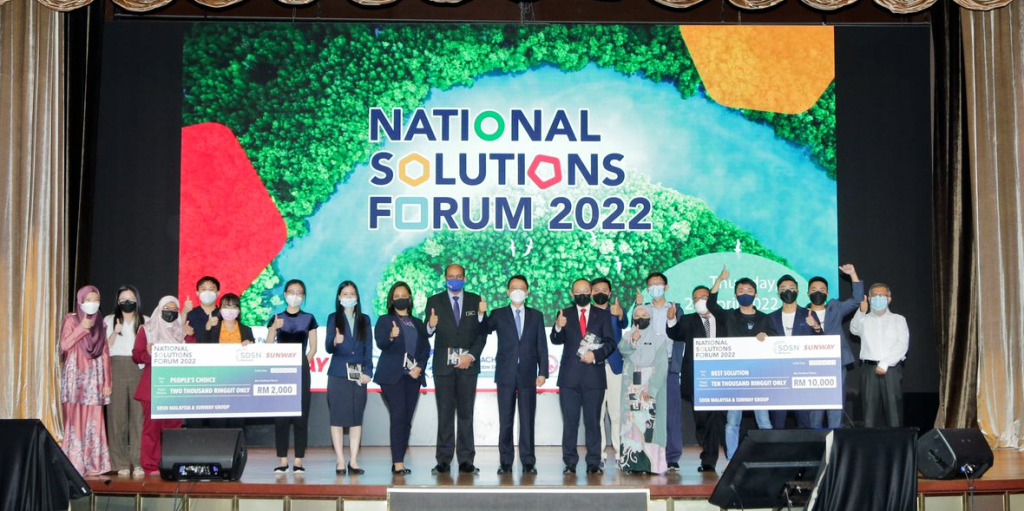
Supplementing Government Efforts to Achieve the SDGs
Supporting the event from the Malaysian government was YB Dato’ Sri Mustapa Mohamed, Minister in the Prime Minister’s Department (Economy). He commended the nine finalists’ understanding of local issues, which enabled them to propose novel strategies to accelerate progress towards sustainable development.
Malaysia’s poverty rate is currently at 5.6%. Malaysia’s current five-year development plan has identified rural and indigenous communities for poverty alleviation efforts. The finalists’ knowledge of local communities allowed them to identify unique needs gaps. This is shown by three of the nine finalists’ solutions being targeted at rural indigenous communities.
Showcasing solution-makers is vital to implementing the SDGs within a local context. The NSF platform allowed recognition of solutions-makers as contextualizing agents of the SDGs. These organizations and individuals have stepped up to fill a needs gap in provision of resources for poverty alleviation.
SDSN Malaysia was supported by the APPGM-SDG Secretariat to inform their network of Solution Providers about the NSF opportunity. In essence, the APPGM-SDG has undertaken the role of identifying, building and linking on-the-ground actors with beneficiaries and relevant government entities. Beginning with 10 parliamentary constituencies in 2020 and an additional 20 constituencies in 2021, they have reached a total of 30 out of the nation’s 222, one in eight.
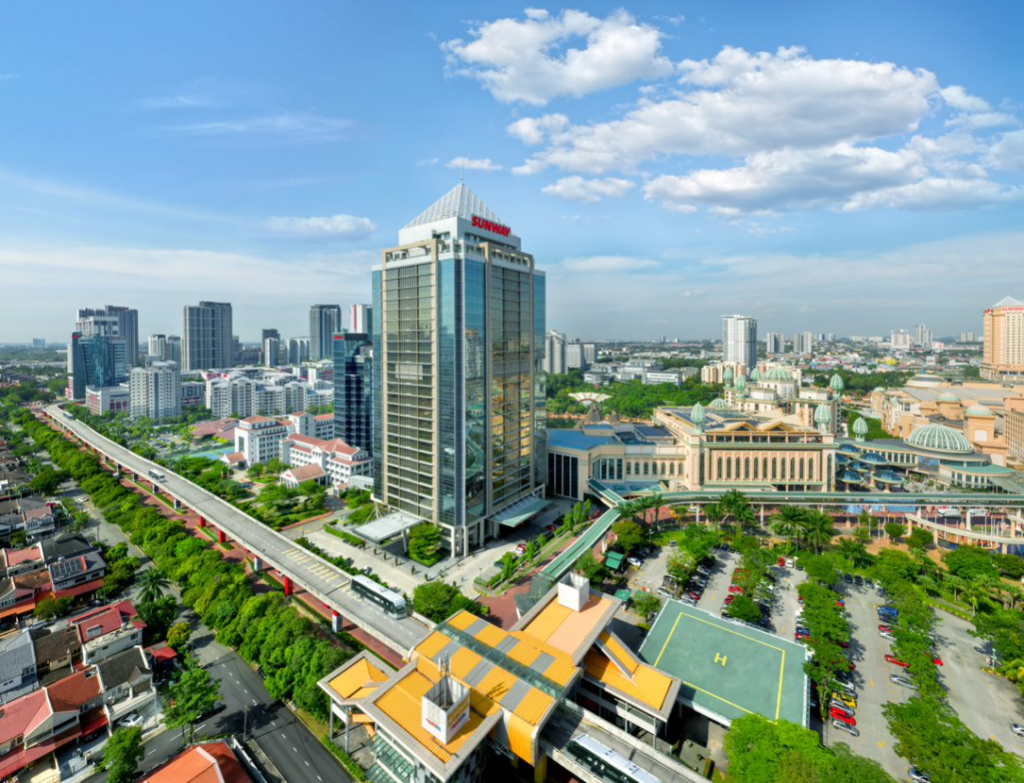
Private Sector Role in Supporting Cross-sectoral Partnership for the SDGs
The business community has a significant role to play in driving sustainable development transformations. Businesses can innovate across their value chains to reduce greenhouse gas emissions and identify both risk and opportunity areas for human wellbeing.
The main event sponsor of the NSF is the Sunway Group, which apart from its own group sustainability efforts, has also pledged US$20 million to advance sustainability in the region. This fund pledged through the Jeffrey Cheah Foundation has since financed the development of the Jeffrey Sachs Center for Sustainable Development at Sunway University, as well as the establishment of the Asia headquarters of the SDSN in Sunway City, Kuala Lumpur.
Driving A National Narrative of Solutions-Making
In addition to supporting knowledge-networks for sustainable development, making the solutions forum a public event serves as a launch pad for widespread public uptake of local sustainable development solutions.
Events like the NSF shift public mindset towards civic participation in solutions-making for local issues. “I applaud such innovative thinking, and I hope that the National Solutions forum can inspire more people from different walks of life to come up with solution-driven initiatives that are beneficial to society,” Mustapa said.

